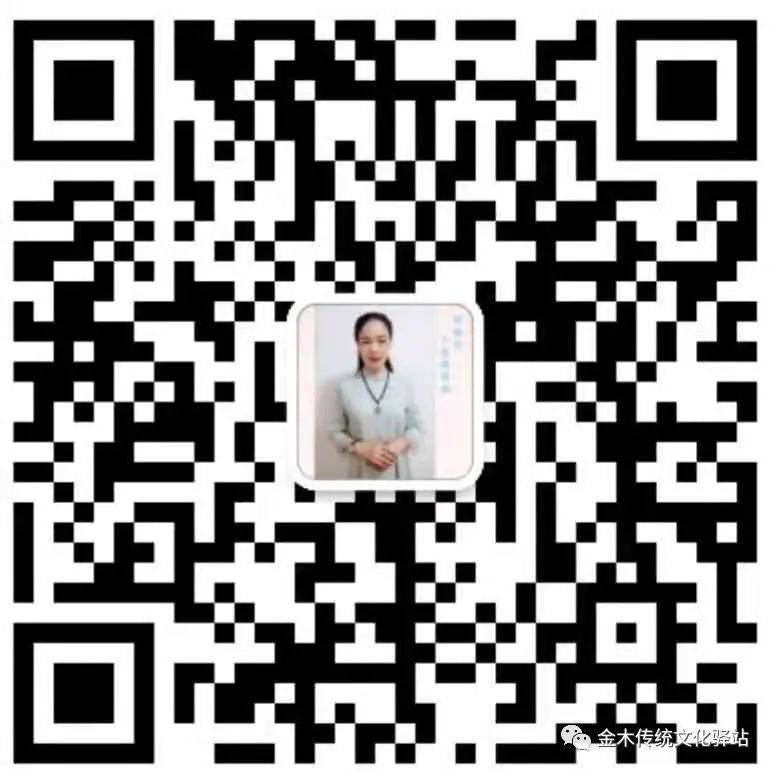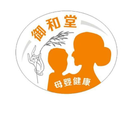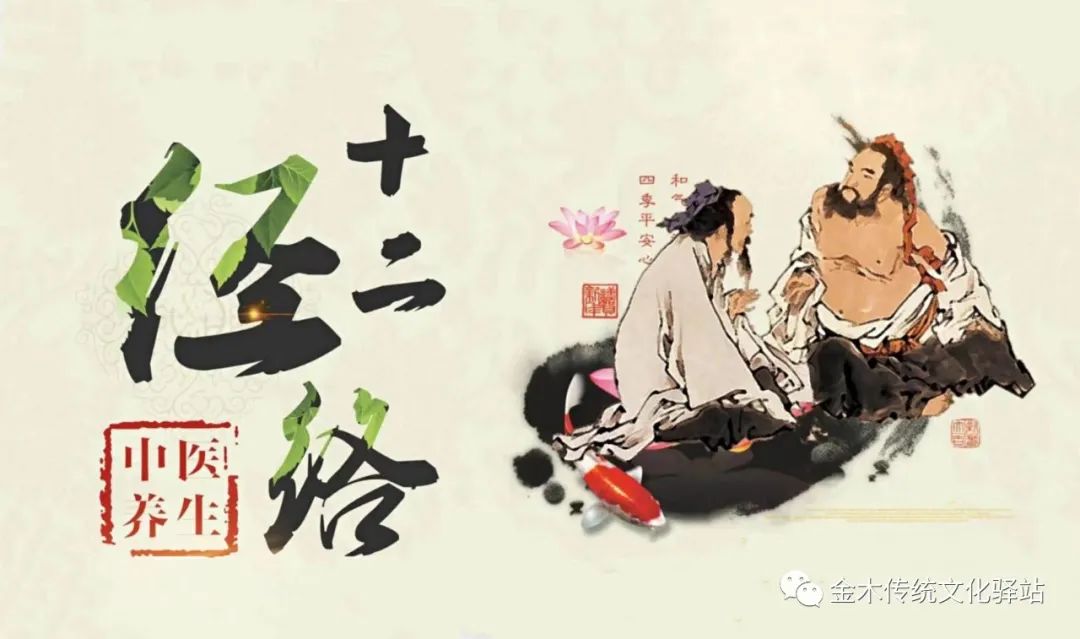
The patterns of deficiency and excess in the twelve meridians have been clearly documented in the “Neijing” (Inner Canon). This article is a revision and compilation based on the clinical practice of Elder Xiao, where each meridian corresponds to several specific acupuncture points that serve as treatment points.
The patterns of deficiency and excess in the twelve meridians have been clearly documented in the “Neijing”, and Elder Xiao has confirmed these findings based on measurements from the meridian detection instrument, making necessary modifications to the syndromes. Below are the revised patterns of deficiency and excess for the twelve meridians.
1. Lung Meridian — Taiyuan (Taiyuan), Zhongfu (Zhongfu), Kongzui (Kongzui), Lieque (Lieque)
Excess: Sadness, fever, cough with shortness of breath, swollen throat, pain in the supraclavicular fossa, shoulder pain, heat in the palms.
Deficiency: Difficulty breathing, dry throat, pain or numbness in the arms, skin pain or numbness, impaired movement of the thumb.
2. Large Intestine Meridian — Quchi (Quchi), Sanjian (Sanjian), Hegu (Hegu), Tianshu (Tianshu), Wenliu (Wenliu), Pianli (Pianli)
Excess: Fever, epistaxis, swollen neck, dry throat, throat obstruction, toothache, hemorrhoids.
Deficiency: Bowel sounds, diarrhea, dry lips, pain in the upper limbs, impaired movement of the index finger.
3. Stomach Meridian — Lidui (Lidui), Jiexi (Jiexi), Chongyang (Chongyang), Zhongwan (Zhongwan), Liangqiu (Liangqiu), Fenglong (Fenglong)
Excess: Heat illness with no sweating, dry lips and mouth, edema, abdominal pain, excessive belching, breast pain, joint pain in the lower limbs, mania.
Deficiency: Facial edema, inability to eat, bowel sounds with abdominal pain, coldness in the shins.
4. Spleen Meridian — Dadu (Dadu), Shangqiu (Shangqiu), Taibai (Taibai), Zhangmen (Zhangmen), Diji (Diji), Gongsun (Gongsun)
Excess: Food not digesting, abdominal distension preventing lying down, vomiting and diarrhea, cold feet with hot shins, pain at the root of the tongue.Deficiency: Abdominal fullness with diarrhea, excessive belching with inability to eat, drowsiness, easy fatigue, jaundice, flatulence, swelling and pain in the thigh and knee, impaired movement of the big toe.5. Heart Meridian — Shaochong (Shaochong), Shenmen (Shenmen), Juque (Juque), Yinxie (Yinxie), Tongli (Tongli)Excess: Thirst, dry throat, constipation, heaviness in the limbs, pain on the inner side of the arms, heat in the palms.Deficiency: Angina, palpitations, slurred speech, confusion.6. Small Intestine Meridian — Houxi (Houxi), Xiaohai (Xiaohai), Wangu (Wangu), Guanyuan (Guanyuan), Yanglao (Yanglao), Zhizheng (Zhizheng)Excess: Fever, sweating, mouth sores, swollen neck.Deficiency: Pain behind the ear, deafness, yellowing of the eyes, pain in the shoulder, upper arm, elbow, and outer forearm, diarrhea.7. Bladder Meridian — Zhiyin (Zhiyin), Shugu (Shugu), Jinggu (Jinggu), Zhongji (Zhongji), Jinmen (Jinmen), Feiyang (Feiyang)Excess: Brain diseases, eye diseases, epistaxis, swelling and pain in the shoulder, back, neck, waist, sacrum, outer side of the lower limbs, and outer ankle, impaired movement of the little toe.Deficiency: Pain in the back of the head, low back pain, hemorrhoids, heel pain.8. Kidney Meridian — Yongquan (Yongquan), Fuliu (Fuliu), Taixi (Taixi), Jingmen (Jingmen), Shuiquan (Shuiquan), Dazhong (Dazhong)Excess: Heat in the mouth and dry tongue, hemoptysis, chest tightness, cough and wheezing, excessive fear, jaundice, pain in the spine and inner thigh, heat and pain in the soles of the feet, genital diseases.Deficiency: Cold body, heaviness, dizziness, tinnitus, forgetfulness, lack of appetite, decreased libido, diarrhea or constipation, cold low back pain, weakness in the feet.9. Pericardium Meridian — Zhongchong (Zhongchong), Daling (Daling), Shanzhong (Shanzhong), Xiemen (Xiemen), Neiguan (Neiguan)Excess: Red face, yellowing of the eyes, fullness in the chest and ribs, cramping pain in the elbow and arm, pain under the armpit.Deficiency: Palpitations, heat in the palms, excessive laughter.10. Sanjiao Meridian — Guanchong (Guanchong), Zhongzhu (Zhongzhu), Yangchi (Yangchi), Shimen (Shimen), Huizong (Huizong), Waiguan (Waiguan)Excess: Red heat in the head and face, sweating, tinnitus, swollen throat, throat obstruction, pain in the outer canthus of the eyes, abdominal distension, difficulty urinating, impaired movement of the ring finger.Deficiency: Difficulty breathing, difficulty urinating, shortness of breath, coldness in the abdomen.11. Gallbladder Meridian — Xiakui (Xiakui), Yangfu (Yangfu), Qiuxu (Qiuxu), Riyue (Riyue), Waiqiu (Waiqiu), Guangming (Guangming)Excess: Headache, chills, fever with sweating, bitter mouth, poor appetite, scrofula, pain in the outer canthus of the eyes, swelling and pain in the chest, ribs, and outer side of the lower limbs, heat in the soles of the feet.Deficiency: Dizziness, eye pain, excessive belching, weakness in the feet.12. Liver Meridian — Xingjian (Xingjian), Ququan (Ququan), Taichong (Taichong), Qimen (Qimen), Zhongdu (Zhongdu), Ligou (Ligou)Excess: Red and swollen eyes, dizziness, irritability, alternating chills and fever, abdominal fullness, pain in the waist and abdomen, genital diseases, irregular menstruation, insomnia, lower abdominal pain in women.Deficiency: Abdominal distension, prolapse of the rectum, weakness in the big toe, decreased libido, nocturnal emissions, enuresis. The above patterns of deficiency and excess for each meridian can be treated using specific points from the respective meridian and the associated organ’s mu points, employing the technique of sparrow pecking to tonify or drain, thus adjusting the balance of the organs and achieving immediate or stabilizing therapeutic effects.
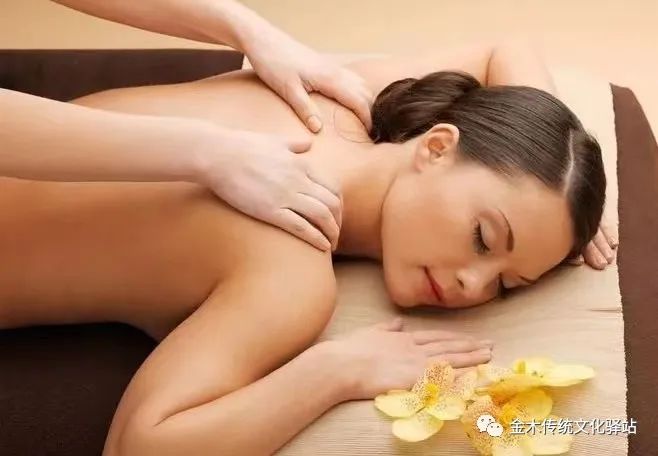
Secrets of Meridian Massage and Tuina
Meridian health maintenance primarily involves regulating various body tissues through the meridians, using traditional Chinese massage and tuina techniques to achieve smooth meridian flow, balance yin and yang, and ultimately expel pathogens and treat diseases, restoring the harmonious state of yin and yang.This method of health maintenance is particularly favored by modern office workers, as it not only helps eliminate toxins from the body but also enhances beauty.Secret One: Tip of the Little FingerAssociated Meridian: Hand Shaoyin Heart Meridian.Effect: Rubbing and pressing the tip of the little finger benefits heart health, alleviating chest tightness, palpitations, and motion sickness. Applying firm pressure to the tip of the little finger can quickly relieve discomfort.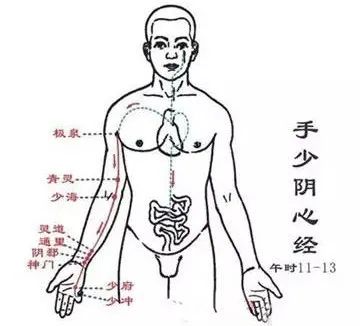 Secret Two: Tip of the ThumbAssociated Meridian: Hand Taiyin Lung Meridian.Effect: Rubbing and pressing the tip of the thumb has the effect of promoting lung function and maintaining respiratory health. Especially in autumn, when the meridian is active in the Hand Taiyin Lung Meridian, it is the best time for respiratory health maintenance. Additionally, applying firm pressure to the tip of the thumb during a cough can alleviate coughing symptoms.Massaging this meridian can enhance facial complexion, particularly effective for pale faces, pale or dark purple nails, and can also help improve emotional agitation, relieve fatigue, and reduce wrinkles.Secret Three: Center of the PalmAssociated Meridian: Hand Jueyin Pericardium Meridian.Effect: During care, pressing the center of the palm with the finger joint can promote overall blood circulation, enhance facial redness, reduce wrinkles, and calm the mind and nerves. It also has certain benefits for regulating menstruation and skin tone. Additionally, it is beneficial for heart health.
Secret Two: Tip of the ThumbAssociated Meridian: Hand Taiyin Lung Meridian.Effect: Rubbing and pressing the tip of the thumb has the effect of promoting lung function and maintaining respiratory health. Especially in autumn, when the meridian is active in the Hand Taiyin Lung Meridian, it is the best time for respiratory health maintenance. Additionally, applying firm pressure to the tip of the thumb during a cough can alleviate coughing symptoms.Massaging this meridian can enhance facial complexion, particularly effective for pale faces, pale or dark purple nails, and can also help improve emotional agitation, relieve fatigue, and reduce wrinkles.Secret Three: Center of the PalmAssociated Meridian: Hand Jueyin Pericardium Meridian.Effect: During care, pressing the center of the palm with the finger joint can promote overall blood circulation, enhance facial redness, reduce wrinkles, and calm the mind and nerves. It also has certain benefits for regulating menstruation and skin tone. Additionally, it is beneficial for heart health.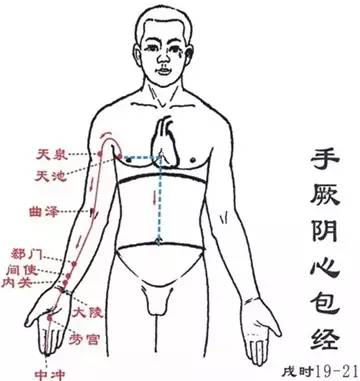 Secret Four: Depression on the Outer Side of the ElbowAssociated Meridian: Hand Taiyang Small Intestine Meridian.Effect: Massaging the depression on the outer side of the elbow can promote small intestine health and enhance nutrient absorption.It can improve dull and lifeless skin tone, restore skin moisture, and has certain effects on skin allergies and acne. For those with anemia, frequent massage in this area is particularly beneficial.Secret Five: Sides of the NoseAssociated Meridian: Hand Yangming Large Intestine Meridian.Effect: Gently pressing the sides of the nose with the fingertip is beneficial for large intestine health, and pressing this area can also improve nasal congestion symptoms.
Secret Four: Depression on the Outer Side of the ElbowAssociated Meridian: Hand Taiyang Small Intestine Meridian.Effect: Massaging the depression on the outer side of the elbow can promote small intestine health and enhance nutrient absorption.It can improve dull and lifeless skin tone, restore skin moisture, and has certain effects on skin allergies and acne. For those with anemia, frequent massage in this area is particularly beneficial.Secret Five: Sides of the NoseAssociated Meridian: Hand Yangming Large Intestine Meridian.Effect: Gently pressing the sides of the nose with the fingertip is beneficial for large intestine health, and pressing this area can also improve nasal congestion symptoms.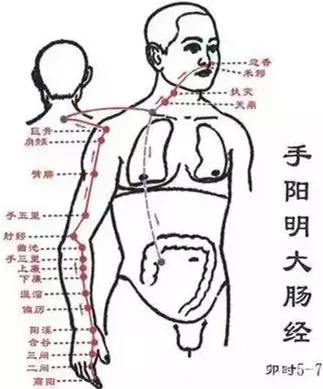 Secret Six: Center of the SoleAssociated Meridian: Foot Shaoyin Kidney Meridian.Effect: Massaging this area can improve sleep quality, and morning massages can provide a boost of energy for the day.Frequent massage can also improve allergic conditions, and is effective for dark spots, dull complexion, and facial swelling. It is recommended to use a bent finger joint to press for about 2 minutes.
Secret Six: Center of the SoleAssociated Meridian: Foot Shaoyin Kidney Meridian.Effect: Massaging this area can improve sleep quality, and morning massages can provide a boost of energy for the day.Frequent massage can also improve allergic conditions, and is effective for dark spots, dull complexion, and facial swelling. It is recommended to use a bent finger joint to press for about 2 minutes.
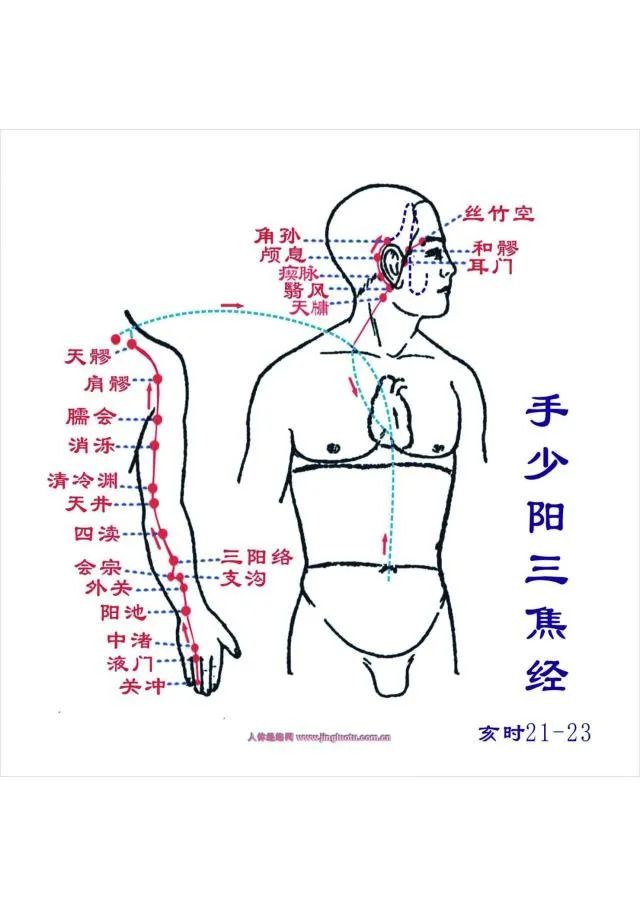
Secret Seven: Shoulder HollowAssociated Meridian: Hand Shaoyang Sanjiao Meridian.Effect: Firmly pressing the shoulder hollow can regulate the circulation of body fluids, enhance immunity, stimulate the cerebral cortex, relax the nerves, and improve discomfort such as headaches, tinnitus, eye pain, and throat pain.It is also effective for facial acne, rosacea, and skin laxity.Secret Eight: Depression on the Inner Side of the KneeAssociated Meridian: Foot Taiyin Spleen Meridian.Effect: You can press with the thumb or apply hot compresses. When pressing, apply enough force to feel significant soreness.Frequent manipulation can regulate spleen function, improve pale complexion, rough skin, and broken capillaries, effectively preventing facial acne, and improving digestive function, aiding in weight loss and body toning.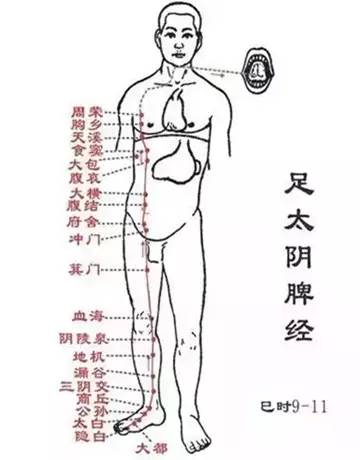 Secret Nine: Outer Canthus of the EyeAssociated Meridian: Foot Shaoyang Gallbladder Meridian.Effect: Gently closing the eyes and pressing the outer canthus with the middle fingertip is an effective method for improving migraines, and it also has the function of brightening the eyes.
Secret Nine: Outer Canthus of the EyeAssociated Meridian: Foot Shaoyang Gallbladder Meridian.Effect: Gently closing the eyes and pressing the outer canthus with the middle fingertip is an effective method for improving migraines, and it also has the function of brightening the eyes.
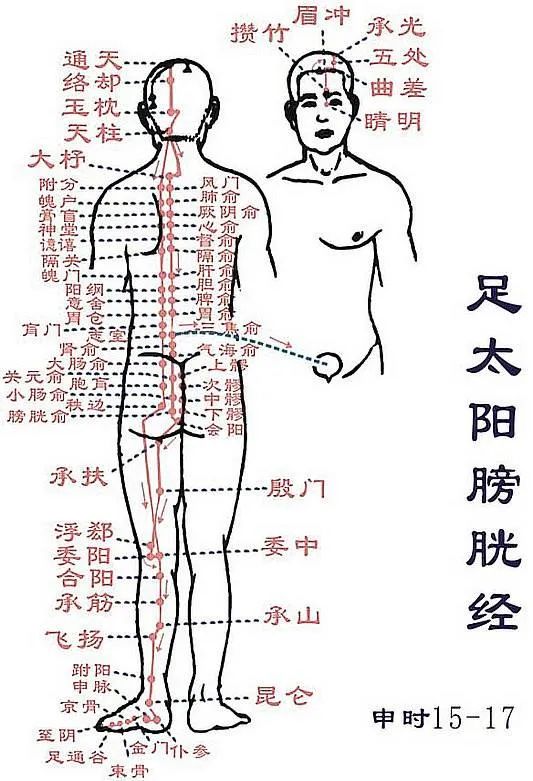
Secret Ten: Center of the Gluteal FoldAssociated Meridian: Foot Taiyang Bladder Meridian.Beauty Effect: Pressing the center of the gluteal fold is beneficial for bladder health, and can improve various causes of freckles and butterfly spots caused by hormonal imbalances during pregnancy and postpartum, as well as skin allergies, dry hair, pale lips, and excessive tearing.Secret Eleven: Center of the Dorsum of the FootAssociated Meridian: Foot Yangming Stomach Meridian.Effect: The Foot Yangming Stomach Meridian has a bidirectional regulatory effect, thus having a weight loss effect.Massaging the stomach meridian can also regulate endocrine function, treat facial acne, improve facial skin color, treat facial asymmetry, and has functions for breast enhancement and promoting mammary gland development, as well as treating loss of appetite, insomnia, and indigestion.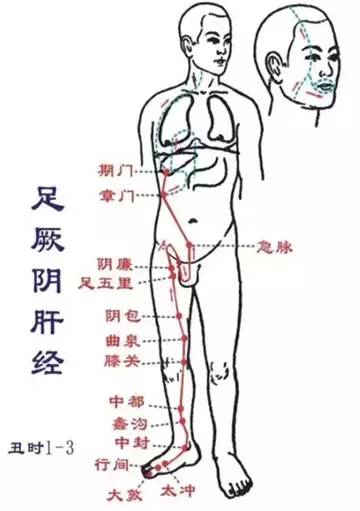 Secret Twelve: Root of the ThighAssociated Meridian: Foot Jueyin Liver Meridian.Effect: Rubbing the root of the thigh until warm can promote liver blood production and detoxification.It is effective for chloasma, pregnancy spots, acne, dull complexion, and dark skin, and can promote breast development and relieve breast swelling and pain.
Secret Twelve: Root of the ThighAssociated Meridian: Foot Jueyin Liver Meridian.Effect: Rubbing the root of the thigh until warm can promote liver blood production and detoxification.It is effective for chloasma, pregnancy spots, acne, dull complexion, and dark skin, and can promote breast development and relieve breast swelling and pain.
Disseminating knowledge of traditional Chinese medicine and promoting Chinese traditional culture, sharing health concepts, conveying care, and passing on health knowledge and traditional culture to more friends…
People are great because of their dreams; we are different because of our love.
Liu Qingning: 186 9643 6785 or (WeChat ID)
Yang Shunsong: 138 7171 7447 or (WeChat ID)
